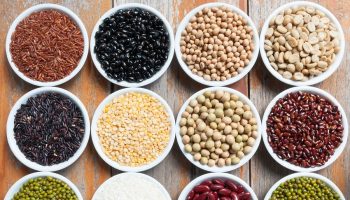
The current daily recommendations in the United States call for the consumption of 0.8 grams of protein per kilogram of body weight. A research published in the American Journal of Physiology-Endocrinology and Metabolism looked at 20 healthy adults all over the age of 52 over the course of four days. The team determined that older adults who consumed double their RDA of protein significantly promoted more muscle synthesis.
Along with strength training, doubling your consumption of protein can promote muscle synthesis and increases in lean muscle and strength. It’s also been found that eating a diet higher in lean protein can actually decrease your risk of stroke as well! Good sources of lean protein are wild fish, organic chicken, grass-fed beef and whey protein.
Green Tea
Green tea polyphenols are known for their antioxidant properties. According to Life Extension, the antioxidants are believed to play a role in reducing oxidative stress leading to inflammation and degradation of muscles. The daily recommended amount of green tea for muscular dystrophy is 250 to 500mg.

Supplements
Supplements that support skeletal and muscular strength such as vitamin D and calcium should be an essential part of your diet if you suffer from muscular dystrophy. The University of Maryland Medical Center states that one to two capsules of fish oil once or twice daily may reduce inflammation while improving immunity. Additionally, the center states that amino acids such as arginine and glutamine will aid in muscle protection. A creatine supplement may help increase muscle strength. Remember to always consult with your physician to review your medical history prior to starting a supplement regimen.
Foods to Avoid
If you have muscular dystrophy, the University of Maryland Medical Center states that you should exclude refined foods such as white breads, sugars and pasta. Additionally, you should avoid coffee and other stimulants such as alcohol and tobacco. If you suffer fromfood allergies, stay away from foods containing additives and preservatives. If any foods that you eat seem to aggravate your symptoms, speak with your physician about removing them from your diet altogether.
Reference:
Disclaimer
The Content is not intended to be a substitute for professional medical advice, diagnosis, or treatment. Always seek the advice of your physician or other qualified health provider with any questions you may have regarding a medical condition.



